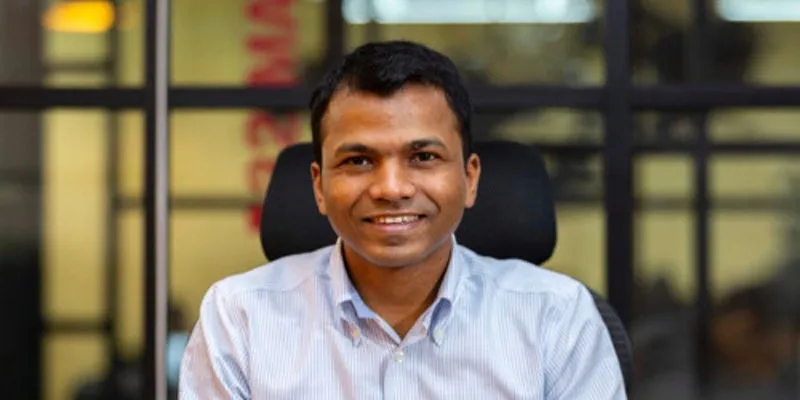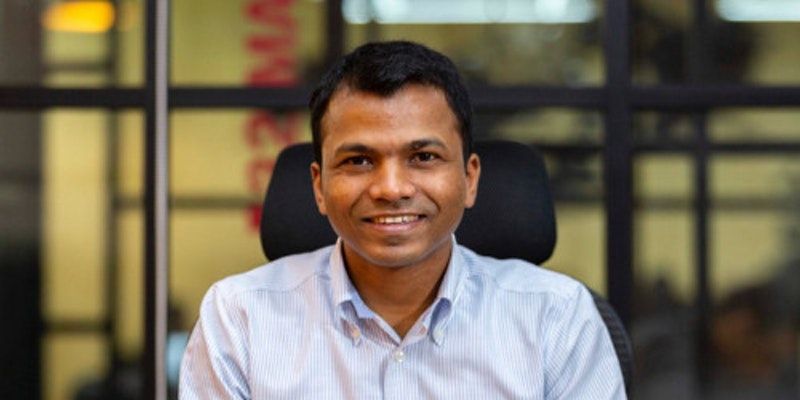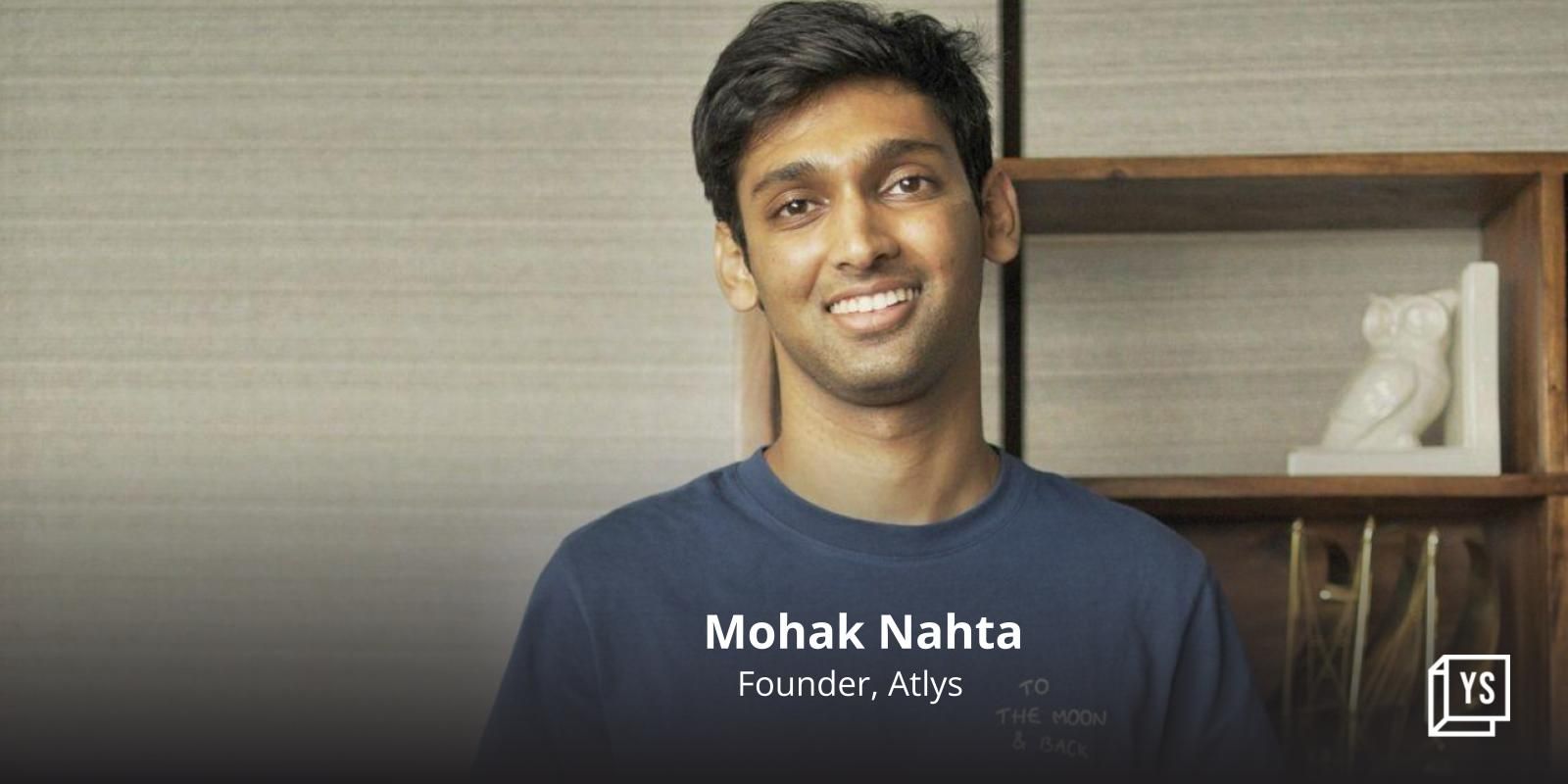Entrepreneurs have to narrow down on an opportunity that will impact the economy: Rajesh Yabaji of BlackBuck
In this week’s GGV Podcast, Hans Tung and Madhu Yalamarthi of GGV Capital speak to Rajesh Yabaji, Co-founder and CEO, BlackBuck, about the logistics space in India, and how it is impacting the economy
Logistics plays a key role in the economic development and growth of a country. The logistics industry provides significant macro contributions to the economy by creating employment, national income, and foreign investment influx. Inefficiency in logistics can raise the cost of doing business, and this is especially true for developing countries.
While the logistics cost is around 8 percent of the Gross Domestic Product (GDP) in the US, in India it is 14 percent.
In this episode of GGV podcast, Hans Tung, Managing Partner, GGV Capital, and Madhu Yalamarthi of GGV Capital speak to Rajesh Yabaji, Co-founder and CEO, .

Rajesh Yabaji, Co-founder and CEO, BlackBuck
The startup is one of India’s largest trucking logistics company. Besides matching shippers with truckers, it also facilitates payments, insurance, and financial services around trucking.
An IIT-Kharagpur graduate, Rajesh worked with the ITC Limited for four years as a Manager in supply chain and category management before starting BlackBuck.
Tune in to listen to Rajesh here:
Hans Tung (HT): Tell us about BlackBuck. What does it do for fleet operators or FMCG companies in India?
Rajesh Yabaji (RY): Trucking is one of the largest unorganised segments in India. The country has a very high cost of logistics, and India spends around 14 percent of its GDP on the transport and logistics sector.
Despite large multinationals spending a lot on hiring trucks, the fulfilment rates are low, and the costs are high. On the fleet operator side, we not only have to deal with millions of intermediaries to transact, but the utilisation level is also at 15 to 17 days in a month. BlackBuck creates a tech stack, enabling these guys to do most of this work efficiently.
So, if you were a large company wanting to get trucks, at BlackBuck, you could find a truck with a 95 to 99 percent fulfilment rate. And if you were a fleet operator working with BlackbBuck, within three months, you would be making 20 to 30 percent more utilisation for your trucks.
HT: Matching shippers and fleet operators is a complicated problem. How did you decide what to prioritise, and what you need to do to get started? Did you have to look at other models to figure it out?
RY: When we started building the platform, the first one and a half years were centered around demand. The demand side has so many problems. This was very obvious until we realised that in India, what was really broken, was the supply side.
Supply mostly comes from Tier III towns in the country, and these guys do not have access to technology. India does not have companies that can automate the payment system on fuel, we do not have electronic tolling, and we do not have any other services around trucking that are available in developed countries.
The problem we started to solve was to help shippers find trucks at a lower price. In one and a half years, we realised that if we did not invest to solve the supply problems to bring them online and help them make more money, this is not going to be solved.
So, the first one and a half years was all about targeting and tracking demand. The last two years have been about thinking through how to correct supply.
Today, we are super proud to say that we have a penetration of close to 8,000 villages. We have people on the ground. One guy covers four to five villages, educating people on what the trucking app is all about, how does it make their life easier, and how will they make more money through this. That has been the story in the last two years, where the economy on the shipper side is quite visible.
A lot of tailwinds in the Indian economy are helping us do this. From December 1, 2019, all Indian toll gates became mandatory on electronic tolling. This is once in a lifetime opportunity.
Madhu Yalamarthi (MY): Hans, you’ve been bullish on Indian companies going global, not just in enterprise SaaS, but also on consumer and B2B2C. Can you explain more where that thesis comes from?
HT: Sure. It is not rocket science to see India has more STEM graduates than anyone else in the world, except for China. But the English language capabilities here are much stronger. So the chance of that talent to be able to produce work with a more global impact is much higher.
Secondly, you look at the number of executives who have done well in the US in companies like Google or Microsoft or Citibank, or even in academia like Harvard University, and you can see the impact that is being made.
A lot of founders in India right now are first or second-time founders. Over the next few years, more Indian founders will be more experienced and will be able to leverage overseas talents.
Since China went through so much in the last 20 years with urbanisation, India can pick up and learn from that as quickly as possible. If you can solve problems for India, you can solve problems for a lot of other places, which are usually less competitive and complicated. Once you learn those lessons, you can go global.
MY: What advice would you give entrepreneurs who are building category-creating products?
RY: I was inspired by the story. I saw all of this happening in front of me. As a middle-class boy, I never thought I would have the courage to quit my decent-paying job.
The good thing about being an entrepreneur today is the fact that we have examples. It is not a completely unknown territory, and it is not only for people with a very high aptitude right at the highest capability. I think that is how the ecosystem is transforming.
My advice for category creators is to remember that when you are creating categories, people do not understand you. Ninety percent of the time people will not get you. You have to find out and narrow down onto an opportunity, which you think is going to add phenomenal value and impact to the Indian economy, the country, and the users. Stick to it. You have to know how well you are making decisions. You have mentors around with whom you can bounce your ideas.
Do your math properly, know your numbers properly, and do your unit economics properly. From day one, ask yourself is it of value to anyone? Will anyone pay for it? Are you going to unlock something which will make you a business model or not?
HT: If you’re helping with country building, in the long run, you will win. People will change their minds to know that you’re doing the right thing.
I agree with Rajesh’s point that sometimes investors want to mitigate risk and look at successful models elsewhere and encourage their founders to adopt or copy that model. But each country is different despite their similarities. So, you have to figure out a way to do the analysis and make sure that you are adding value to the country-building. If you are doing that, I think the opportunity will be so massive that smart investors will come around sooner or later.
(Edited by Megha Reddy)













